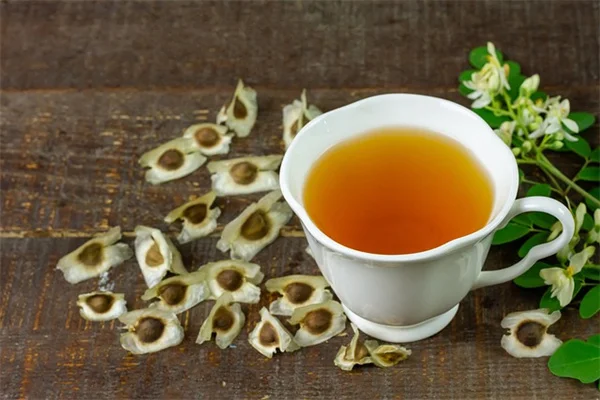Advertisement
Can olive oil really help prevent dementia? The answer is yes - and the science is impressive. A groundbreaking study tracking 92,383 adults for 28 years found that consuming just 7 grams daily (about half a tablespoon) of olive oil was associated with a 28% lower risk of dementia-related death. That's nearly one-third reduction from simply using this common kitchen staple!Here's why this matters to you: We're not talking about some exotic supplement or extreme diet change. This is about making smarter choices with the oils you already use. The research, published in JAMA, shows that olive oil's unique combination of healthy fats and antioxidants provides powerful protection for your brain as you age.I've been following nutrition research for years, and what excites me most about these findings is how practical they are. You don't need to overhaul your entire diet - just swapping your regular cooking oil for quality olive oil could make a significant difference in your long-term brain health. Let's break down exactly how this works and how you can benefit.
E.g. :Can a Daily Multivitamin Boost Your Memory? New Study Says Yes!
- 1、The Surprising Link Between Olive Oil and Brain Health
- 2、The Brain-Boosting Magic of Olive Oil
- 3、Making Olive Oil Work for You
- 4、Beyond Dementia - Other Perks You'll Love
- 5、Putting It All Together
- 6、The Science Behind Olive Oil's Brain Benefits
- 7、Olive Oil in World Cuisines
- 8、Common Myths Debunked
- 9、Creative Ways to Enjoy Olive Oil
- 10、The Future of Olive Oil Research
- 11、FAQs
The Surprising Link Between Olive Oil and Brain Health
Why This Study Matters to You
Let me tell you something fascinating - that golden liquid in your kitchen might be doing more than just making your salads tasty. A massive study tracking 92,383 people over 28 years found something incredible about olive oil and dementia.
Here's the kicker: people who consumed at least 7 grams daily (about half a tablespoon) showed a 28% lower risk of dementia-related death compared to those who rarely used it. That's nearly one-third lower risk just from using olive oil regularly!
Breaking Down the Numbers
The researchers categorized olive oil consumption into four groups:
| Consumption Level | Daily Amount | Risk Reduction |
|---|---|---|
| Rare/Never | Less than once monthly | Baseline |
| Light | 0-4.5 grams | Moderate benefit |
| Moderate | 4.5-7 grams | Significant benefit |
| Regular | 7+ grams | 28% lower risk |
Now you might wonder - "How does something so simple make such a big difference?" Well, it's all about what's inside that little bottle.
The Brain-Boosting Magic of Olive Oil
 Photos provided by pixabay
Photos provided by pixabay
What's Inside That Makes It Special
Olive oil isn't just fat - it's packed with monounsaturated fatty acids, vitamin E, and powerful plant compounds called polyphenols. These work together like a superhero team for your brain:
• The healthy fats help build and protect your brain cells
• Vitamin E acts like armor against damage
• Polyphenols fight off harmful inflammation
Imagine your brain's nerve cells as electrical wires. The fats in olive oil act like insulation around these wires, helping messages travel faster and more clearly. This means better memory, sharper thinking, and potentially protection against diseases like Alzheimer's.
How It Stacks Up Against Other Oils
You've got options at the grocery store - vegetable oil, coconut oil, avocado oil. But here's why olive oil stands out:
Most seed oils are high in Omega-6 fats, which can actually increase inflammation if you get too much (and trust me, in our modern diets, we get way too much). Olive oil has a better balance with more Omega-3s, plus those extra antioxidants that other oils just don't have.
Think of it this way - while other oils might keep your pan from sticking, olive oil actually sticks up for your brain health!
Making Olive Oil Work for You
Choosing the Right Bottle
Not all olive oils are created equal. Here's what to look for when shopping:
1. "Extra virgin" on the label - this means it's the highest quality
2. Dark glass bottles - protects the oil from light damage
3. Harvest date - fresher is better
4. Origin information - some regions produce better quality
Yes, prices have gone up recently (thanks climate change!), but skimping here means missing out on the real benefits. As my nutritionist friend says, "Buying cheap olive oil is like putting regular gas in a Ferrari - it'll run, but not like it should."
 Photos provided by pixabay
Photos provided by pixabay
What's Inside That Makes It Special
Getting your 7 grams doesn't mean chugging oil (please don't!). Try these simple ideas:
• Drizzle on salads or roasted veggies
• Use in homemade salad dressings
• Lightly sauté vegetables
• Add a spoonful to soups or pasta dishes
My personal favorite? A slice of crusty bread dipped in high-quality olive oil with a pinch of sea salt. Simple, delicious, and brain-healthy!
Beyond Dementia - Other Perks You'll Love
Whole-Body Benefits
While we're focusing on brain health here, olive oil does so much more:
• Supports heart health (the Mediterranean diet isn't famous for nothing!)
• May help manage blood sugar
• Contains anti-cancer compounds
• Supports healthy digestion
It's like getting a 2-for-1 deal at the supermarket - one product with multiple health benefits. Now that's what I call smart shopping!
What About Other Brain Foods?
You might ask, "Is olive oil enough by itself?" Absolutely not! Think of it as part of a brain-healthy lifestyle that includes:
• Colorful fruits and vegetables
• Fatty fish like salmon
• Nuts and seeds
• Whole grains
• Regular exercise
• Good sleep
But here's the beautiful part - olive oil makes all these other healthy foods taste better, so you're more likely to eat them regularly. It's the delicious glue holding a healthy diet together!
Putting It All Together
 Photos provided by pixabay
Photos provided by pixabay
What's Inside That Makes It Special
What blows my mind is how such a simple dietary swap can make such a difference. We're not talking about expensive supplements or extreme diets - just choosing olive oil over other fats.
The study shows that consistency matters more than quantity. Using a little bit daily appears more beneficial than occasional large amounts. So make it a habit - keep that bottle within easy reach in your kitchen.
Your Action Plan
Ready to give your brain some love? Here's what to do today:
1. Check your current oil - is it extra virgin olive oil?
2. If not, add it to your next grocery list
3. Find one new way to use it this week
4. Share this info with someone you care about
Remember, protecting your brain doesn't have to be complicated. Sometimes the simplest solutions - like reaching for the olive oil - make the biggest difference in the long run. Your future self will thank you!
The Science Behind Olive Oil's Brain Benefits
How Olive Oil Protects Your Neurons
You know that satisfying feeling when you oil a squeaky hinge? Well, olive oil does something similar for your brain cells! The monounsaturated fats in olive oil help maintain cell membrane flexibility, allowing nutrients to flow in and waste products to flow out more efficiently.
Here's something cool - these healthy fats actually become part of your brain's structure. About 60% of your brain is fat, and the type of fat you eat directly impacts how well your brain functions. Isn't that wild? We're literally made of what we eat!
The Antioxidant Powerhouse You're Missing
Ever wonder why olive oil has that slightly peppery aftertaste? That's the polyphenols talking! These compounds are like your brain's personal bodyguards, fighting off free radicals that can damage cells.
One particular polyphenol called oleocanthal has researchers especially excited. It works similarly to ibuprofen in reducing inflammation, but without the side effects. Imagine getting pain relief and brain protection from your salad dressing - now that's what I call multitasking!
Olive Oil in World Cuisines
Mediterranean Secrets for Longevity
When I visited Greece last summer, I noticed something fascinating - olive oil wasn't just an ingredient, it was a way of life. Families would proudly serve their homemade oil, often pressing it from trees that had been in their family for generations.
The Mediterranean diet, famous for its health benefits, uses olive oil as its cornerstone. But here's the twist - it's not just about adding oil, but replacing less healthy fats. That's the real secret sauce (pun intended) to their longevity.
Global Variations You Should Try
While we often think of Italian or Greek olive oils, some incredible varieties come from:
| Country | Unique Characteristics | Best Uses |
|---|---|---|
| Spain | Fruity, slightly nutty | Sauteing, frying |
| California | Grassy, herbal notes | Salads, dipping |
| Tunisia | Peppery, intense | Marinades, bold flavors |
Why does this matter? Different olive varieties contain varying levels of beneficial compounds. Rotating your oils means you get a broader spectrum of nutrients - plus it keeps your meals interesting!
Common Myths Debunked
Cooking With Olive Oil - Yes or No?
You've probably heard that olive oil shouldn't be used for cooking because it has a low smoke point. Well, I'm here to tell you that's mostly nonsense! Extra virgin olive oil actually has a smoke point around 375-410°F, which is perfect for most home cooking.
The real danger comes when people reuse oil multiple times or let it smoke excessively. As long as you're not deep-frying at super high temperatures, your olive oil is perfectly safe for cooking. My Italian grandmother cooked everything in olive oil and lived to 98 - if that's not proof, I don't know what is!
Does More Expensive Mean Better?
Here's a question that might surprise you: "Should you always buy the priciest bottle on the shelf?" Not necessarily! While quality matters, some mid-range oils offer excellent value.
The key is looking for certification seals like the California Olive Oil Council or International Olive Council stamps. These guarantee you're getting the real deal without paying for fancy packaging or marketing hype. Sometimes the $15 bottle is just as good as the $30 one!
Creative Ways to Enjoy Olive Oil
Beyond the Kitchen - Unexpected Uses
Did you know olive oil isn't just for eating? Here are some brilliant ways my Greek friends taught me to use it:
• As a natural moisturizer (great for dry skin!)
• To remove eye makeup gently
• To condition wooden cutting boards
• As a hair mask for shiny locks
Talk about versatile! I keep a small spray bottle of olive oil in my bathroom now. It's cheaper than most beauty products and works just as well - plus you can snack while you pamper yourself!
Olive Oil in Desserts? Absolutely!
If you've never tried olive oil in sweets, you're missing out. Replacing butter with olive oil in cakes gives them an incredible moist texture and sophisticated flavor.
My favorite hack? Drizzle high-quality olive oil over vanilla ice cream with a pinch of sea salt. The combination of sweet, salty, and fruity will blow your mind. It's like a gourmet dessert you can feel good about eating!
The Future of Olive Oil Research
What Scientists Are Studying Now
Researchers are digging deeper into how olive oil might help with:
• Depression and anxiety symptoms
• Recovery from traumatic brain injuries
• Preventing Parkinson's disease
• Enhancing cognitive function in healthy adults
Early results are promising, especially for mood disorders. One study found people consuming more olive oil reported lower levels of depression. Maybe that's why Mediterranean folks always seem so happy - they've got the good oil!
Personalized Nutrition Approaches
With DNA testing becoming more accessible, we're learning that some people may benefit more from olive oil than others based on their genetics. How cool is that?
Certain gene variants affect how we metabolize fats and antioxidants. In the future, we might be able to tailor olive oil recommendations to your unique biology. For now though, the evidence is strong enough that most of us would benefit from making the switch.
So what are you waiting for? Your brain deserves the good stuff - go drizzle some liquid gold on your next meal!
E.g. :Olive oil consumption linked with lower risk of dementia-related death
FAQs
Q: How much olive oil should I consume daily for brain health benefits?
A: The study found the sweet spot is at least 7 grams per day - that's about half a tablespoon. This amount showed the maximum benefit with a 28% lower dementia-related death risk. But here's the good news: you don't need to measure precisely or consume it all at once. Simply using olive oil as your primary cooking oil and in salad dressings will likely get you there. I recommend starting your day with a teaspoon in your breakfast (try drizzling on avocado toast) and using it for cooking vegetables later. Remember, consistency matters more than quantity - making olive oil your daily go-to is what counts.
Q: What makes olive oil better for brain health than other oils?
A: Olive oil stands out because of its unique combination of monounsaturated fats (the good kind), vitamin E, and polyphenols. These work together like a dream team for your brain: the fats help build and protect brain cells, while the antioxidants fight inflammation that can lead to cognitive decline. Most other cooking oils (like vegetable or corn oil) are high in Omega-6 fats that can actually promote inflammation when consumed in excess. What's more, olive oil's polyphenols have been shown to specifically protect against the types of damage seen in Alzheimer's and Parkinson's diseases.
Q: Does the type of olive oil matter for brain health benefits?
A: Absolutely! Extra virgin olive oil (EVOO) is your best choice because it's the least processed and retains the highest levels of those brain-protective compounds. Here's what to look for: dark glass bottles (protects from light damage), a harvest date within the last year, and certification seals. While prices have risen recently, don't be tempted by cheap "light" olive oils - they've been processed to remove many of the beneficial compounds. Think of EVOO as an investment in your future brain health. Pro tip: store it in a cool, dark place to preserve its nutritional value.
Q: Can olive oil help if I already have early signs of memory problems?
A: While this study focused on prevention, other research suggests olive oil may help slow cognitive decline in early stages. The anti-inflammatory effects appear particularly beneficial for maintaining existing brain function. However, it's not a cure-all - you'll want to combine olive oil with other brain-healthy habits like regular exercise, mental stimulation, and a Mediterranean-style diet. If you're concerned about memory issues, definitely consult your doctor, but adding quality olive oil to your diet is one simple, positive step you can take right away.
Q: What are some easy ways to incorporate more olive oil into my daily meals?
A: I'm glad you asked! Here are my 5 favorite simple ways to get your daily 7 grams: (1) Drizzle over roasted vegetables - it enhances flavor AND nutrition, (2) Make a quick vinaigrette with lemon juice and herbs, (3) Use instead of butter on whole grain bread, (4) Add a teaspoon to smoothies for creaminess, (5) Finish soups or pasta dishes with a flavorful swirl. The key is to use it in place of less healthy fats you're already consuming. Bonus: olive oil makes healthy foods taste better, so you'll naturally eat more vegetables and whole grains too!







